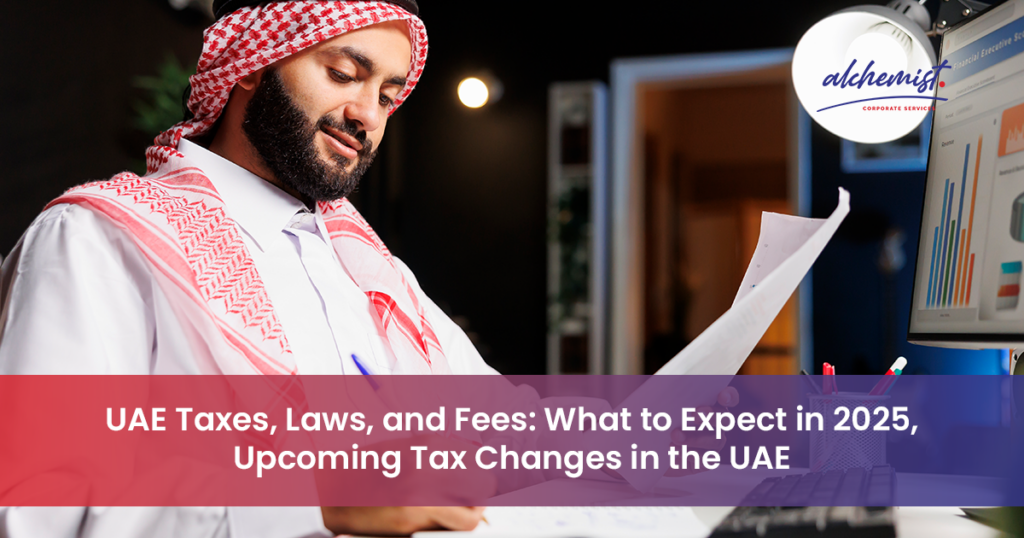
UAE Taxes, Laws, and Fees: What to Expect in 2025,Upcoming Tax Changes in the UAE
UAE Tax Updates and Regulatory Changes Taking Effect in 2025
The UAE is gearing up for significant tax and regulatory changes starting January 2025. These updates aim to enhance the country’s economic framework, encourage innovation, and support Emiratisation efforts. Here’s a comprehensive guide to the key changes you need to know.
Corporate Tax Increase for Large Multinational Companies
From January 1, 2025, large multinational enterprises (MNEs) operating in the UAE will be subject to a minimum corporate tax of 15% on profits. This increase, up from the current 9%, applies to businesses with consolidated global revenues of €750 million (approximately $793 million) or more in at least two of the past four financial years.
The Domestic Minimum Top-Up Tax (DMTT) aligns the UAE’s corporate tax regime with global standards, reinforcing the country’s commitment to fair and transparent taxation. The federal corporate tax, initially introduced in June 2023, continues to apply at a statutory rate of 9% for businesses below the MNE threshold.
Strengthened Emiratisation Goals
In line with its vision for sustainable economic development, the UAE is increasing its Emiratisation targets for private sector companies:
Private Companies with 50+ Employees: Must ensure that Emiratis constitute 7% of their skilled workforce by June 2025, increasing to 8% by December 2025.
Smaller Businesses (20-49 Employees): Across 14 key sectors, these companies must employ at least one Emirati in a skilled position by the end of 2024 and retain them into 2025.
Failure to meet these targets will result in financial penalties of AED 96,000 for each unappointed Emirati worker, effective from January 1, 2025. The UAE’s commitment to Emiratisation has already created over 124,000 private sector jobs for Emiratis across 23,000 companies.
R&D Tax Incentives (Effective January 2026)
To bolster innovation and economic growth, the UAE is introducing an R&D tax incentive for tax periods starting January 1, 2026. Key features include:
Tax Credit Range: 30% to 50% on eligible R&D expenditures.
Refundable Credits: Based on business revenue and employee count.
Additional Benefits: The incentive complements the 0% tax rate on income from Qualifying Intellectual Property under the Free Zone Tax Regime.
This initiative underscores the UAE’s focus on fostering a knowledge-based economy and driving global competitiveness.
Refundable Tax Credit for High-Value Employment
Starting January 1, 2025, a refundable tax credit will encourage businesses to invest in high-value employment roles that contribute significantly to the UAE’s economic growth. This tax credit will be calculated as a percentage of eligible salary costs for employees engaged in high-impact activities, such as:
- C-suite executives
- Senior personnel performing core business functions
The incentive is designed to attract top talent and strengthen the UAE’s position as a global business hub.
Preparing for 2025 and Beyond
With these transformative changes on the horizon, businesses in the UAE must act now to stay compliant and leverage the opportunities these incentives offer. Whether you’re a multinational enterprise or an SME, aligning your strategies with the new regulations will be critical for success in 2025 and beyond.
At Alchemist Accounting, we are committed to helping businesses navigate these changes with ease. Our team of experts provides tailored solutions and insights to ensure compliance and unlock growth opportunities. Contact us today at +9714 2432107 to learn more about how we can support your journey in the UAE’s evolving business landscape.




